RightBattery.com
Tests and reviews of different batteries to help you find the Right One…
Search
Archive for the ‘NiCd/NiMH Batteries’ Category
1.2V AAA 800 mAh Sanyo Eneloop NiMH Battery Tests
21, Nov 2013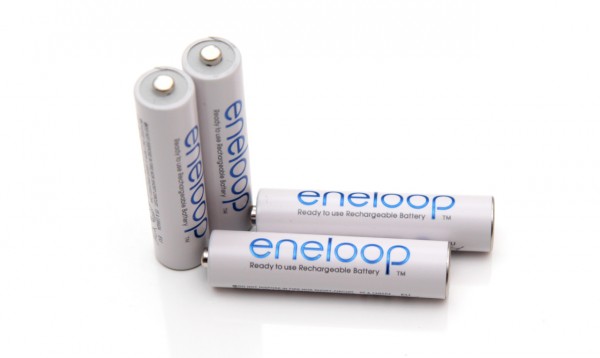
The 1.2V AAA 800 mAh Sanyo Eneloop batteries are of the third generation of Eneloop batteries from Sanyo and offer some really impressive features making the competition seem inferior in all aspects besides the capacity, even though 800 mAh is still a good rating for an LSD (low self discharge) NiMH battery. Sanyo claims that these Eneloop batteries are capable of being recharged up to 1800 times and that they are able to retain 90% of their capacity if only stored and not being used and up to 70% of their charge after 5 years of storage – definitely impressive. Another interesting fact about these AAA batteries is that on their package you can find a minimum rating of 750 mAh, but nothing about their typical capacity of 800 mAh written, though they are being sold as 800 mAh and that information is available on Sanyo’s website. These batteries are supposed to come pre-charged at 75% of their capacity and ready to be used, the ones we tested were manufactured in 10-2012 and we have measured the initial available capacity between 526 and 532 mAh or pretty much within the 10% discharge for a bit over than a year since they are manufactured, and now for the other tests…
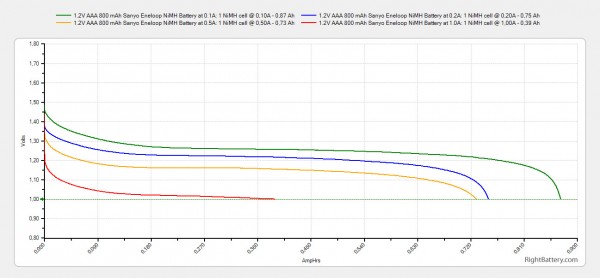
Starting the tests of the 1.2V AAA 800 mAh Sanyo Eneloop batteries with a low constant current discharge rate of 0.1A got us 872 mAh as useable capacity or almost 10% more than the typical rating of the batteries, so a great result. at a constant current discharge rate of 0.2A the batteries still manage to provide 750 mAh or the minimum guaranteed capacity rating and going higher at 0.5A the result is still great in terms of available capacity. Going for 1.0A however shows that these batteries are not doing that good, so they are not that suitable for very high power applications. In fact Sanyo has another series of batteries called Eneloop XX that is designed to handle better higher loads than the standard Sanyo batteries that are optimized more for longer use with lower power requirements.
The performance of the 1.2V AAA 800 mAh Sanyo Eneloop batteries in our tests:
– 872 mAh at 0.1A load
– 750 mAh at 0.2A load
– 730 mAh at 0.5A load
– 390 mAh at 1.0A load
– 1.090 Wh at 0.1A load
– 0.907 Wh at 0.2A load
– 0.838 Wh at 0.5A load
– 0.402 Wh at 1.0A load
– Download the official 1.2V AAA 800 mAh Sanyo Eneloop NiMH battery datasheet…
8.4V 200 mAh Uniross NiMH Battery Tests
20, Nov 2013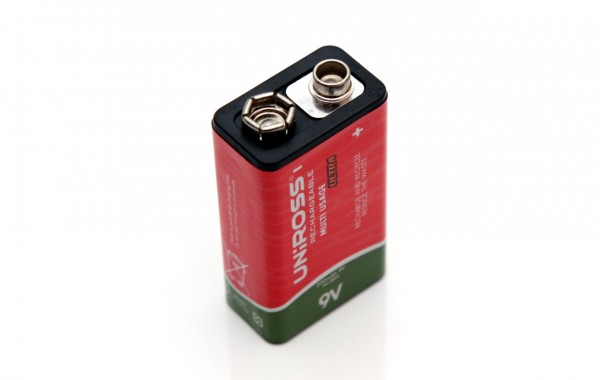
The 8.4V 200 mAh Uniross NiMH batteries we are testing here are traditional rechargeable NiMHs and though they are labeled as 9V, they are consist essentially of 7 NiMH cells of 1.2V each, so they are more like 8.4V and not the same as 9V alkaline, but some battery manufacturers prefer to label their 8.4V NiMH products as 9V for the the consumer to easily associate them as a rechargeable alternative to the 9V Alkaline batteries and Uniross is apparently one of those battery makers.
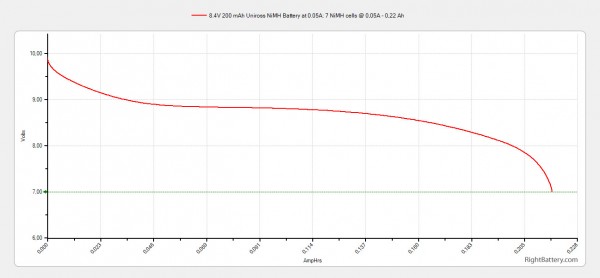
In order to test the capacity of the 8.4V 200 mAh Uniross NiMH batteries we are using a constant current discharge rate of 0.05A (50 miliampers) and we have managed to get 217 mAh and that is a bit over the rating of these batteries, so it seems that Uniross has done a good job with these. The only drawback is that the capacity of the battery is a bit on the lower end of the capacity offered by 8.4V products and that along with the fact that this is not an LSD battery makes is a bit of a problem if you want to get longer operation time when using this battery in a low power device.
The performance of the 8.4V 200 mAh Uniross NiMH Batteries in our tests:
– 217 mAh at 0.05A load
– 1.887 Wh at 0.05A load
8.4V 280 mAh Fujicell NiMH Battery Tests
19, Nov 2013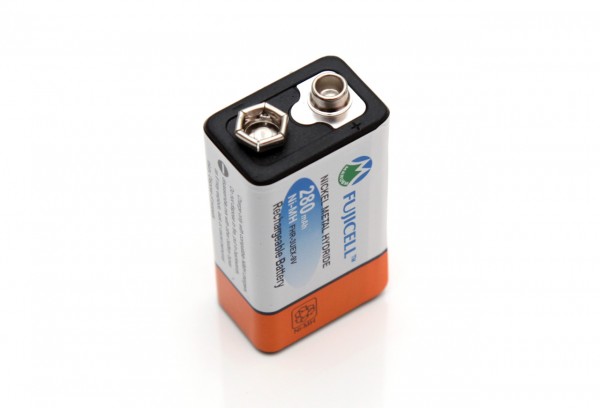
The 8.4V 280 mAh Fujicell NiMH batteries we are testing here are from the traditional type of rechargeable Nickel Metal Hydride batteries and they come with a pretty high capacity for their type of 280 mAh, so we would be interested to see if they can actually deliver it. Fujicell rates these batteries as being capable of being recharged up to 1000 times, so they should be able to serve you for pretty long time considering that this type of batteries is often used for low power applications.
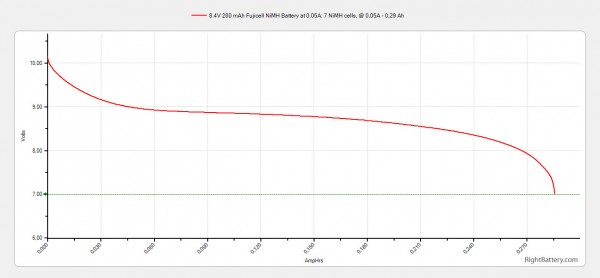
In order to test the capacity of the 8.4V 280 mAh Fujicell NiMH batteries we are using a constant current discharge rate of 0.05A (50 miliampers) and we have managed to get 285 mAh capacity before hitting the 7V cutoff voltage and that is actually a bit over manufacturer’s rating for this battery that is 280 mAh. So we cans ay that with this battery Fujicell has done a good job and they manage to deliver what they have promised as capacity, now if only the battery was also a low self discharge type NiMH, but nevertheless a good product from Fujicell.
The performance of the 8.4V 280 mAh Fujicell NiMH Batteries in our tests:
– 285 mAh at 0.05A load
– 2.486 Wh at 0.05A load